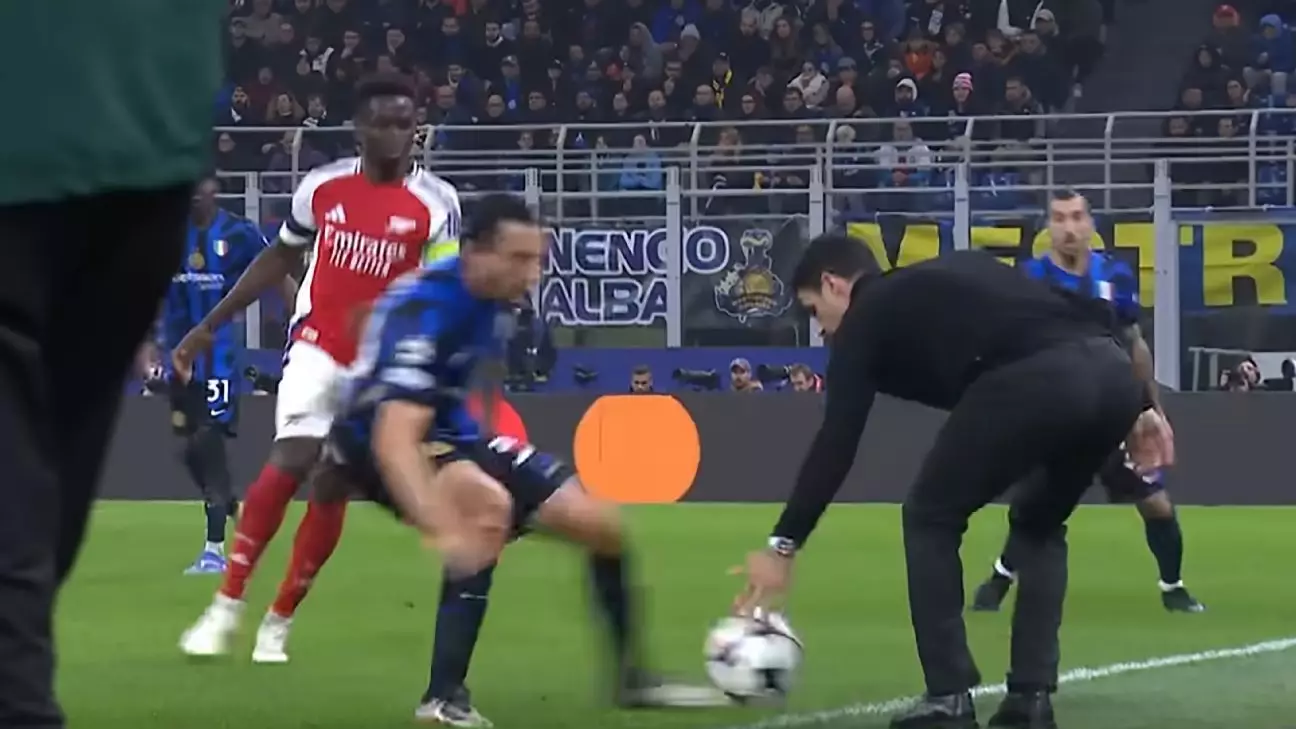The International Football Association Board (IFAB) has taken a significant step towards reforming football regulations following a controversial incident involving Arsenal’s coach Mikel Arteta during a Champions League match against Inter Milan. This situation highlighted the need for clarity in the laws surrounding coach interference during play, leading to discussions that could reshape the discipline of coaches on the sidelines.
During the match, Inter’s Matteo Darmian attempted to reclaim a ball that had drifted towards the boundary for a throw-in. Before the ball officially crossed the line, Arteta intervened by picking it up, prompting referee Istvan Kovacs to issue a yellow card rather than the anticipated red. This decision sparked outrage and questions about the consistency of officiating in crucial moments, ultimately shining a spotlight on the existing disciplinary guidelines for coaching staff.
Arteta’s actions, while arguably aimed at facilitating a swift game restart, raised concerns among football authorities regarding the broader implications of allowing coaches to influence play. This led to a reflection on the existing rules that govern such interactions, particularly given that other coaches, like Carlos Corberán and Derek McInnes, have faced harsher penalties under similar circumstances earlier this season.
In light of this and similar incidents, IFAB convened during its Annual Business Meeting to discuss proposals for revising the laws governing coach conduct. The board firmly believes that a coach’s intention to expedite gameplay should be considered when determining disciplinary actions. This indicates a shift in perspective, suggesting that while maintaining strict regulations is crucial, the motivation behind a coach’s actions should also be taken into account.
The upcoming change aims to allow for cautions in situations resembling Arteta’s, creating a more nuanced approach to disciplinary measures. This adjustment would represent a departure from the blanket application of penalties that have previously subjected coaches to rigid interpretations of the rules. This recommendation, pending approval at the IFAB’s Annual General Meeting on March 1, is expected to come into effect next summer, marking a pivotal moment in coaching regulation.
In addition to the changes surrounding coaches, IFAB is also evaluating modifications to the dropped ball rule. Currently, if a ball strikes a referee and the team in possession is affected, they automatically receive the dropped ball. However, the proposal suggests that if a pass is errant and clearly intended for the opposition, the dropped ball should instead be awarded to the opposing team. This adjustment seeks to enhance fair play by discouraging unintentional interference that benefits one side unjustly.
These proposed changes reflect the ever-evolving landscape of football regulations, as the sport strives to balance fairness with the dynamic nature of the game. By acknowledging the human elements of coaching and the potential gray areas in officiating, IFAB aims to refine disciplinary practices that oversee the sport, ultimately fostering a more equitable environment for all involved. With the upcoming AGM serving as a platform for these discussions, the football world will be keenly observing how these changes can enhance the integrity of the game while allowing coaches the leeway to foster expediency on the field.

